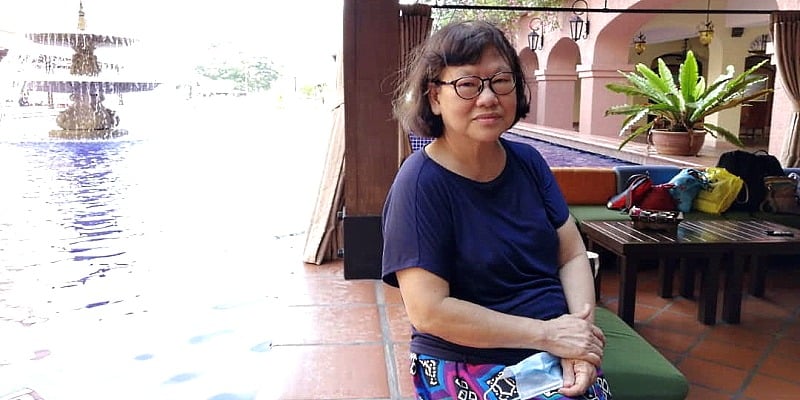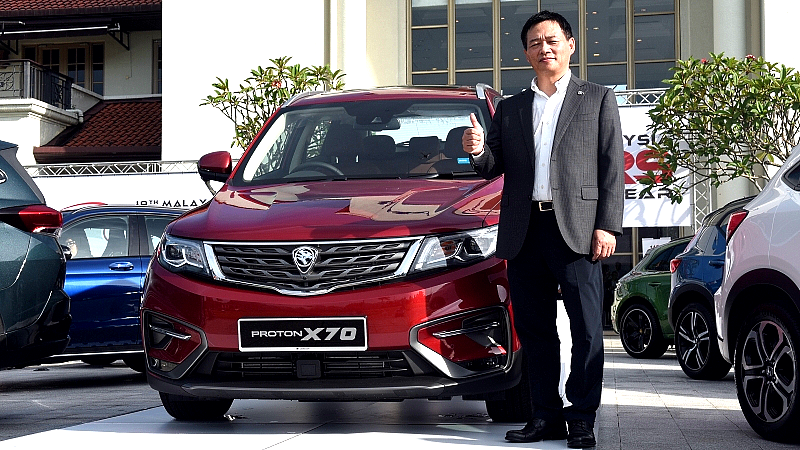
Last Friday (Sept 2), national car manufacturer Proton Holdings Bhd announced its best monthly sales in nine years. This was its best monthly performance since July 2013.
In August 2022, Proton’s car sales stood at 15,880 (including exports) units with a growth of 35% over July 2022. And in the first eight months of this year, it sold 87,481 vehicles compared to 62,637 units in Jan-Aug 2021 — a sharp increase of 39.7%.
I am happy to read this piece of fantastic news from Proton. However, I am not at all surprised to see Proton delivering outstanding results.
I became optimistic towards Proton, after my media interview in 2019 with its China-born CEO Dr Li Chunrong, who in October 2017 took up the challenging task to turn around Malaysia’s first national car maker.
Dr Li was headhunted by China’s Zhejiang Geely Holding Group after the latter purchased a 49.9% stake in Proton Holdings, which had been looking for a foreign strategic partner after incurring massive losses and accumulating billions of debts.
Indeed, Geely selected the right man to head Proton Holdings to ensure its business venture bear fruits.
Dr Li promptly revamped the car maker after he took over the CEO’s post. One of the key thrusts in his plan was getting the right talents from within and overseas to join him in rescuing the sick auto company. In his 2019 interview, he said “behind every product is people; and behind people is culture (covering team work, work ethics, integrity and attitude towards learning and achievement).”
In fact, it was a risky venture for Geely as Proton had a long history of using the wrong men, mismanagement and political interference.
Geely’s chairman Li Shufu had identified all the flaws in Proton, according to a book authored by him describing his journey of persuading Tun Dr Mahathir Mohamad to agree to Geely’s participation.
Despite knowing Proton was a very sick company, Mr Li wanted it because he could use Malaysia as a springboard to penetrate the broader Asean market.
The key obstacle in getting Proton was Mr Li needed to impress upon Dr Mahathir his financial might and ability, despite his international fame in acquiring and turning around Volvo.
Mr Li wrote in his book that he had met Dr Mahathir several times in Malaysia and even overseas. Proton was the brainchild of Dr Mahathir in early 1980s when he was Prime Minister for the first time.
Prior to 2017, Proton had undergone several government rescue exercises. More than 15 billion ringgit was injected into it, but this did not stop Proton from bleeding and recovering.
Looking back, the man sent by Geely was the perfect professional to fix problems in Proton.
Dr Li has a strong educational background and credentials in car manufacturing. Before coming to Malaysia, he had rescued an ailing auto firm and established an auto company from scratch in China.
It is clear from media reports Dr Li has worked very hard. In the 2019 interview, he told me he worked 12 hours a day and six days per week. His team had to work just as hard.
Dr Li had to revamp the board, tackle cost and quality issues.
As expected, he encountered teething problems in the first working year.
In demanding car parts suppliers to cut prices by 30% to reflect international market levels, he was condemned.
He became a controversial figure when bumiputra dealers turned against him and petitioned the government to exert political pressure on him.
Luckily, Dr Li had the backing and understanding of the top and government. This enabled him to overcome race, nationality and political issues.
When sending dealers to China to visit the bright showrooms of Geely, Dr Li went on to develop new products. The introduction of X50 and X70 at affordable prices, as well as upgrading of existing products, have given Proton a new lease of life. Proton cars have now shed the old stigma associated with poor quality.
The car maker is now a profit-making company. Its rising revenue contribution to its listed parent company is lifting the bottom-line of DRB-Hicom Bhd.
My observations and views are shared by investment banker turned investor Ian Yong. He wrote to me via an email after I asked for his comment: “I drive an X70. It is an impressive car.
“The transformation at Proton is incredible. Dr Li and his management team has changed the culture and attitude of the workers. Productivity of the workforce has increased significantly.
“The model line-up was revamped and refreshed. Proton introduced SUV models which were absent prior to Geely’s participation in Proton. The X50 and X70 are based on best-selling Geely SUV models in China. Both models have been tremendously popular in Malaysia because of design and more importantly, improved build quality.
“Proton, for many years, suffered from an image of poor build quality. For example, windows often did not work. The build quality and design of Proton vehicles are now world class.”
Proton has also shown it takes customer complaints seriously. In March this year, Dr Li began to hold long weekly meetings to iron out issues on shortage of car parts.
It is also expanding export sales and developing Proton factory in Tanjung Malim in Perak.
It appears Proton is meeting targets. Under the 10-year plan crafted by Dr Li in 2017, Proton aimed to achieve profitability within the first three years. This was achieved in two years.
In 2017, Dr Li also set a target to produce 400,000 cars in 2027 to command the biggest market share in Malaysia, and to become the third biggest car maker in Asean in sales in 2027. It is unsure whether these targets would be affected by the Covid-19 pandemic and national lockdown in 2020-21.
But for this year, Dr Li’s 2022 target of selling 150,000 Proton cars is likely to be met. This is because close to 90,000 units were sold in the first eight months, and if the August sale of 15,880 stays or rises for the rest of the year, it is possible the 2022 target could be hit by end-December.
The spectacular performance of Proton today shows that for a corporation to succeed, the capability and quality of top leaders, as well as strong management, are paramount. Proton’s experience may be a good reference for other local distress companies looking for rescue or strategic partners.

(Veteran writer Ho Wah Foon is a freelance journalist after retiring as editorial consultant from The Star. Prior to this, she had worked for Reuters, Chinese Forbes magazine, The Straits Times of Singapore and The Edge. The views expressed here do not represent those of Sin Chew group.)
ADVERTISEMENT
ADVERTISEMENT


































